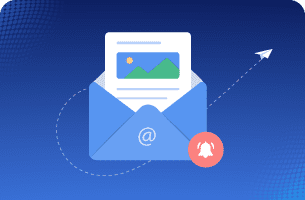Fact: Your assumptions can’t be accurate (not fully, at least), but you try to come close.
Business planning often relies on assumptions. If you revisit your plan today, it’s probably sitting on a pile of them:
- Who will your customers be?
- How will they pay?
- And, how fast will you grow?
I’ve been testing AI tools for all sorts of tasks recently, and one area where they’ve worked incredibly well is testing assumptions.
This is me, founder of Upmetrics, sharing how I use AI to stress-test business plan assumptions.
Absolute Feedback Mode (Setup Prompt)
The first thing I do is prepare ChatGPT for what’s coming next.
I’ve learned it works best when you ask ChatGPT to be rude and blunt (dropping the kindness and words of encouragement).
I use this prompt before starting any analysis. It turns ChatGPT into a blunt, diagnostic reviewer:
Once you add this prompt, your ChatGPT is ready to test the assumptions.
Start Testing
Now, it’s time to start testing the assumptions. Decide what metrics or components of your business plan you want to stress-test. You can even ask ChatGPT for the inputs.
Ask something like: “I’m an XYZ business owner, testing my business plan assumptions, what assumptions can be critical for my industry, and I should test them?”
And, you’ll have a starting point. Let me show you how you can test the key assumptions like the following:
Customer Fit
Start with your favorite assumption. The one that feels solid. Usually, it’s about your customer.
You probably already have a picture in mind of who they are, what they value, and how they’ll respond. That’s exactly what you need to challenge first.
Ask AI: “Who’s least likely to buy my product, and why would they reject it?” Then, let it argue with you.
If the answers sound too generic: “price,” “trust,” “awareness,” you haven’t gone far enough.
Push for specifics like:
“Which part of my offer doesn’t sound believable to this buyer?” or “What would make them scroll past my ad?”
This is where real insight hides. Because the moment you understand why someone wouldn’t buy, you start discovering how to make your offer irresistible to the ones who will.
Problem Significance
Next: Is the problem painful enough to justify a new business, or just an inconvenience people can live with?
Ask AI to analyze public reviews, Reddit threads, or Quora discussions in your space.
Have it rank the emotional intensity of user complaints from 1 to 10.
If most sound mild — “It’s annoying but manageable” — your business might be built on a soft problem.
Solution Value
This is an interesting one:
If a major competitor copied your product tomorrow, what would stop them from winning faster?
This question strips away the illusion of uniqueness. AI can help you map direct and indirect competitors and point out overlap in product features, pricing, and brand strength.
If the only differentiator left is “better customer service,” you don’t have a moat yet.
Market Reality
What market trends make your idea weaker today than it was a year ago?
Feed AI your target segment, pricing, and offering, then ask it to list three macro or behavioral shifts that could hurt your positioning.
For example, maybe AI tools now do what you planned manually, or budgets for your category have tightened.
It helps you understand whether your product truly has a market.
Pricing Logic
What’s the most credible objection customers would raise about your price?
Tell AI your pricing structure, then ask it to simulate buyer feedback.
Focus less on what people can pay and more on what makes them question the value.
You might discover a messaging gap, not a pricing one.
Operational Viability
If your business suddenly scaled 10x, what’s the first thing that would break?
Ask AI to stress-test your operations. Have it list systems that would fail under sudden growth: customer support, supply chain, onboarding.
This forces you to build contingency plans early instead of fixing leaks later.
Investor readiness
If an investor only had three minutes, what would make them pass immediately or what would make them reject?
Feed your one-paragraph pitch and ask AI to act as a skeptical investor. Tell it to cut the fluff and point out weak claims or missing logic.
If you can fix those in writing, you’ll save yourself from the same rejection live.
Final Thought
In a nutshell, AI won’t tell you if your plan will succeed.
What it will do — and do fast — is expose everything that might make it fail.
If you’re someone who doesn’t have a mentor or a good critique to show you mirror, AI can be an incredible one.
Use AI as the brutally honest reviewer you wish you had earlier.
Because the best founders aren’t the ones who avoid being wrong — they’re the ones who find out faster.


